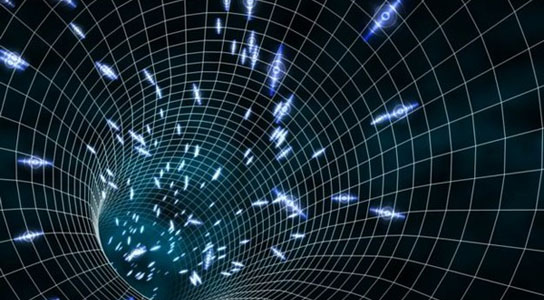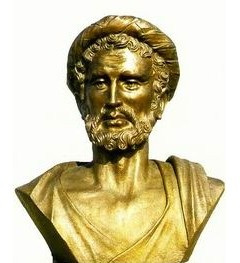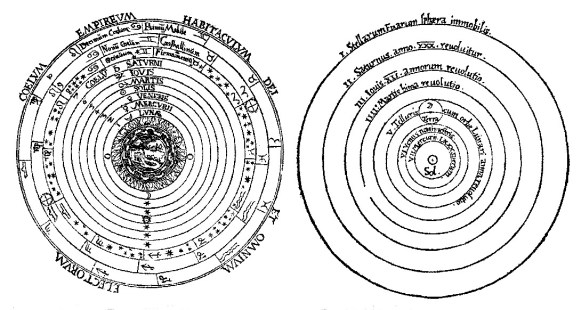THE SOUTHWORTH PLANETARIUM
207-780-4249 www.usm.maine.edu/planet
70 Falmouth Street Portland, Maine 04103 43.6667° N 70.2667° W Altitude: 10 feet below sea level Founded January 1970 Julian Date: 2459351.18
70 Falmouth Street Portland, Maine 04103 43.6667° N 70.2667° W Altitude: 10 feet below sea level Founded January 1970 Julian Date: 2459351.18
2020-2021: CXXX
THE DAILY ASTRONOMER
Monday, May 17, 2021
Seeking Space-Time Part I
________________________________
TIME-SPACE
Experience the planetarium show that conveys audiences
to various points in space-time: the Big Bang, the end of the
Cretacrous period, a medieval Mayan ritual, the moon landing,
and even into a hypothetical future.
Showings on Wednesday, Thursday, and Friday at 1:00 p.m.
$6.00 - adult; $5.50 - child/senior
____________________________________
The material comprising physical reality, itself. Or, the
apparently rigid, but ultimately malleable, grid work system permeating
all that exists within our Universe. Here, we specify 'our' Universe
to distinguish it from the plethora of other space-times systems that
might exist well out of reach. No matter where one travels - the
remotest world tucked away within the Perseus Super-Cluster, or into the
backyard, spacetime encloses and encompasses: the intangible trinity
of depth, breadth, and width allied with duration or time, pervasive,
yet perceptible only through consciousness, itself deeply mysterious.

Astronomy involves itself in material investigations, planetary trajectories, machinations of stars, dynamics of interacting galaxies: the physics responsible for all that transpires within space-time: the essence of the cosmos that remains ultimately enigmatic. How can we possibly study that one aspect of the Universe that eludes our senses? Perhaps human inquiry, as formidable as its proven to be when trying to demystify the world, is lamentably unequal to such investigations.
Well, even if space-time ruminations are above our comprehension, humans throughout the centuries have devoted considerable time and resources to trying to puzzle it out, The first people whose contemplations remain on record were ancient Greece's natural philosophers. These bold thinkers, the predecessors to modern day scientists, asserted that through rationality the human mind could deduce nature's governing principles. Zeno of Citium (344-262 BC)*, an early skeptic, insisted that neither space nor time were real as material objects could not act on them. Ironically, this earliest presumption would only be contradicted 2200 years later. Zeno taught that empty space was necessarily not existent as it had no meaning whatsoever.
Archytas (428-347 BC) reasoned that space had to exist as evidenced by the ability of a person to move an object from one point to the other. Were space non-existent, motion would become impossible. A few centuries later, Lucretius (99-55 BC) wrote similarly about time, but claimed that it did not exist by itself, but was made manifest through observations of moving things.

Archytas
Aristotle ( 384-322 BC), one of the few truly well known Greek philosophers, was contemptuous of his predecessors' attempts to elucidate the principles of space and time. He thought that space was defined solely by occupying objects. If you place a chair on the floor, space assumes the identity of a chair on a floor. Here, space was perceived as being as adaptable as fluid that shaped itself in accordance with whatever cup contained it. Here, as an aside, we should mention that Aristotle was similarly disdainful of the atomists, the philosophers who believed that matter was reducible to a combination of indivisible particles. As Aristotle rose to eminence, both in life and posthumously, his theories prevailed over the contradicting views of his forebears and contemporaries. The atomic theory, championed most notably by Democritus, was dismissed, only to find confirmation with the advent of modern chemistry. His views on space also rose in popular estimation. Perhaps most pertinent to our discussion is his insistence that reality be divided into the ultimate 'above,' the heavens and the ultimate below, 'the Earth.' presumed to occupy its center.
Claudius Ptolemy (85 - 165 CE), deemed by many scholars as history's most mathematically gifted charlatan, imposed a series of clever constructs to quantify Aristotle's treatise of an inert world surrounded by a mobile, but otherwise immutable heaven. Ptolemy's epicycles and deferents, along which planets described complex prograde and retrograde loops around a static Earth, were ingenious contrivances, but inherently inaccurate, as Ptolemy, himself, realized, hence his inclusion false figures and planetary configuration into his proleptic almanac (one that pre-dates the time of compilation.) Ptolemy produced a solar system model sufficiently workable to be taught as fact for centuries. He had little, however, to say about the nature of space, itself, apart from adorning it with his handy lattice work.

Aristotle's view that objects defined space went mostly unchallenged for more than a thousand years. In fact, Italian Astronomer Galileo Galilei (1564-1642) didn't perturb this space paradigm as much as one would have thought he would have, he being so instrumental in demonstrating that the Sun, not Earth, defined the solar system's center. As far as space, itself, was concerned, Galileo almost confirmed the absolutist notion that the stars rested in space, as assuredly as the Sun reposed inertly in its own niche. Galileo actually coined the phrase "absolute motion." an ironic distinction for one who defied an inquisition with the bold proclamation "but, it does move,' here in reference to the rotating and revolving Earth.
Isaac Newton (1642-1727), co-discover of the Calculus and classical physics, provided the absolutists with a physical framework. His succinct phrase, "Absolute, true and mathematical time, in and of itself, and from its own nature, flows without relation to anything external." Of space, he was equally insistent that it existed independent of time and also of those objects that moved and remained stagnant within it. Newton established this notion by developing a revolutionary, though mechanistic, model of the Universe. He perceived the cosmos as a large clockwork mechanism in which every element's position and speed could be predicted provided that their earlier conditions were known. Through the power of rigorous mathematical calculations, Newton demonstrated how Earth bound objects fell, the Moon revolved and the planet's moved.
Newtonian mechanics, as was known, proved so effective at describing physical phenomena that it held sway over physical science for nearly two centuries. Rigid, three dimensional space and time, the progression that caused all change and dynamism. Neither were related and neither were changeable. They existed, perhaps forever and would always exist in accordance with divine intention.
That notion worked so splendidly....at least for awhile....
*This fellow is not the same philosopher responsible for Zeno's paradox.
To subscribe or unsubscribe from the Daily Astronomer: